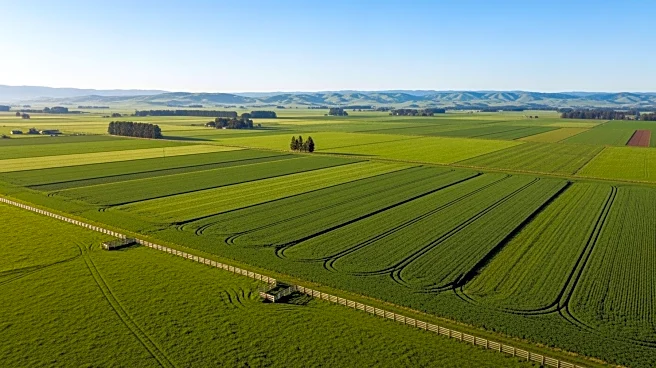What is the story about?
What's Happening?
Thomas Gent, a fourth-generation farmer and regenerative agriculture lead at Agreena, discusses the importance of stacking incomes for farmers transitioning to regenerative agriculture. Gent highlights the challenges faced by farmers due to policy uncertainty and climate change impacts. He emphasizes the need for financial support and diverse income streams, including carbon markets, to facilitate the transition. Gent's family farm in the UK transitioned to regenerative practices nearly two decades ago, driven by economic factors and the potential for EU subsidies.
Why It's Important?
The transition to regenerative agriculture is vital for improving soil health and resilience against climate change. However, financial stability is crucial for farmers to adopt these practices. Stacking incomes through carbon markets and other initiatives can provide the necessary support for farmers, ensuring they can manage risks and investments associated with the transition. This approach not only benefits the environment but also enhances the economic viability of farming operations, potentially leading to widespread adoption of regenerative practices.
What's Next?
Farmers are expected to explore various income streams to support their transition to regenerative agriculture. The role of carbon markets and private schemes will likely become more prominent, providing financial incentives for sustainable practices. As policy uncertainty continues, farmers may increasingly rely on non-governmental initiatives to secure their livelihoods. The success of these efforts could influence agricultural policies and encourage more farmers to adopt regenerative practices.
Beyond the Headlines
The shift towards regenerative agriculture reflects broader trends in sustainable farming and environmental conservation. It highlights the need for innovative solutions to address climate change and economic challenges in the agricultural sector. The emphasis on stacking incomes underscores the importance of financial resilience in achieving long-term sustainability goals.














